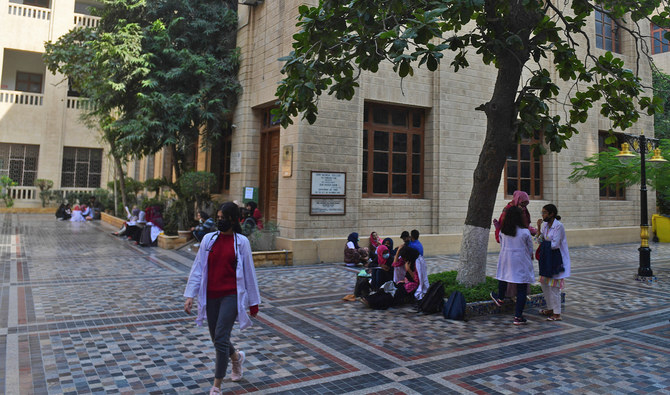ISLAMABAD: Pakistan joined the Muslim world in sending condolences as the Vatican made final preparations Friday for Pope Francis’s funeral and the last of the huge crowds of mourners filed through St. Peter’s Basilica to view his open coffin.
Over 128,000 people have already paid their last respects to Francis, whose coffin will be closed at 8:00pm (1800 GMT) in a ceremony attended by senior cardinals.
Many of the 50 heads of state and 10 monarchs attending Saturday’s ceremony in St. Peter’s Square, including US President Donald Trump and Ukrainian leader Volodymyr Zelensky, are expected to arrive later Friday in Rome.
“Pakistan conveys its heartfelt condolences on the passing of His Holiness, Pope Francis, a revered spiritual figure and a worldwide advocate for peace, interfaith dialogue and compassion,” the foreign office said.
“His Holiness demonstrated unwavering commitment to fostering unity among world religions, advocating for the oppressed and promoting the inherent dignity of all humankind. Pakistan deeply values his tireless efforts to enhance mutual respect and understanding among diverse cultures and faiths.”
The foreign office said the pope’s legacy was marked by “profound humility, selfless service and a unifying vision for humanity,” which would serve as an inspiration for generations to come.
“At this moment of profound sorrow, Pakistan stands in solidarity with our Catholic brothers and sisters worldwide and with all those touched by the extraordinary life of service.”
Italian and Vatican authorities have placed the area around St. Peter’s under tight security with drones blocked, snipers on roofs and fighter jets on standby. Further checkpoints will be activated on Friday night, police said.
Vast crowds of people on Friday morning packed Via della Conciliazione, the wide avenue leading to the Vatican, for the third and final day of the pope’s lying-in-state.
For a second night in a row, the Vatican kept St. Peter’s open past the scheduled hours to accommodate the queues, only closing the doors between 2:30am (0030 GMT) and 5:40am Friday.
Cardinal Kevin Farrell, Camerlengo of the Holy Roman Church, will preside at the Rite of Sealing of the Coffin of the late Pope Francis on Friday, April 25, at 8:00 PM, ahead of the papal funeral on Saturday morning.
The Catholic Church’s first Latin American pope died on Monday aged 88, less than a month after spending weeks in hospital with severe pneumonia.
The Argentine pontiff, who had long suffered failing health, defied doctors’ orders by appearing at Easter, the most important moment in the Catholic calendar.
It was his last public appearance.
Condolences have flooded in from around the world for the Jesuit, an energetic reformer who championed those on the fringes of society in his 12 years as head of the world’s 1.4 billion Catholics.
He used his last speech to rail against those who stir up “contempt... toward the vulnerable, the marginalized, and migrants.”
After the funeral, Francis’s coffin will be driven at a walking pace to be buried at his favorite church, Rome’s papal basilica of Santa Maria Maggiore.
The hearse will pass down Rome’s Fori Imperiali – where the city’s ancient temples lie – and past the Colosseum, according to officials.
Big screens will be set up along the route on which to watch the ceremony, Interior Minister Matteo Piantedosi said.
Francis will be interred in the ground, his simple tomb marked with just one word: Franciscus.
People will be able to visit the tomb from Sunday morning, as all eyes turn to the process of choosing Francis’s successor.
With inputs from AP


















